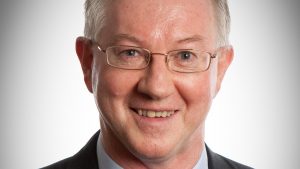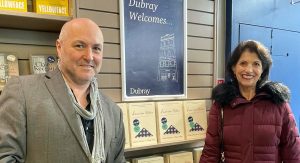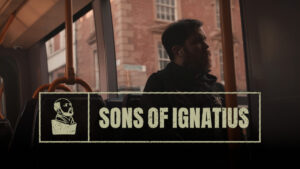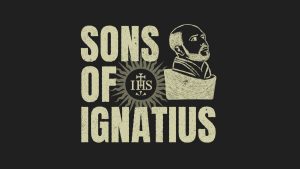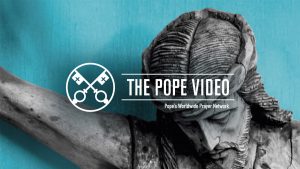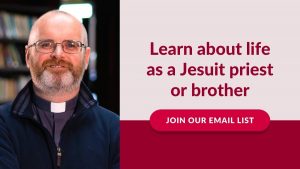The mind of Benedict
 Michael Paul Gallagher SJ, Dean of the Faculty of Theology at the Gregorian University in Rome, was back in Ireland recently to deliver a lecture on the theology of Pope Benedict. In an interview for RNN, he spoke to Piaras Jackson about the Pope’s theology and attitudes. Michael Paul was asked what themes he sees in the Pope’s writings. You can listen to or read the interview here. Audio courtesy of RNN.
Michael Paul Gallagher SJ, Dean of the Faculty of Theology at the Gregorian University in Rome, was back in Ireland recently to deliver a lecture on the theology of Pope Benedict. In an interview for RNN, he spoke to Piaras Jackson about the Pope’s theology and attitudes. Michael Paul was asked what themes he sees in the Pope’s writings. You can listen to or read the interview here. Audio courtesy of RNN.
[display_podcast]MPG: Pope Benedict has insisted, over forty years of his life as a theologian and a thinker, that faith is very simple. It is a love story between God and humanity. And how can we find the language for that today? He’s worried that this is difficult.
He’s worried that our modern view of reason is a bit shrunken and narrow and cannot understand love. And so he is emphasising: “If only we could understand the yes that God says to us in Christ”. How can we do that today?
PJ: And how does he suggest that people might hear that ‘Yes’ of God?
MPG: He thinks that community is the obvious place in which people can grow and listen and learn to pray and learn to love – various kinds of community. He stresses a lot that this discovery is a gradual process, that one is on the road of faith the whole of one’s life, and that people – only when they are receptive – open up to the surprise of God. He insists again and again that we are made by love and for love. And how can we recognise ourselves? We can recognise ourselves mirrored in Christ.
PJ: Pope Benedict looks beyond the individual and he looks at the culture as well and he has concerns sometimes about the way society develops. What do you think he would like to see in Europe today?
MPG: Yes, he is quite worried about Europe. A tree without roots dries up, he has said. He’s worried that Europe has become so secular that it has become deaf to its own humanity, to its own thirst, to its spiritual longings. I suppose he is thinking of his own Germany, but he’s also thinking of course of the refusal of the European Union to have any reference at all to its Christian background in its constitution. That’s a very strange decision. But one has to add that, actually, the French President, Sarkozy, in a visit to Rome recently, said that there is a kind of secularism that came down from the French Revolution and is now old-fashioned. It’s out of date. We can have a secular society, a separation of Church and State, and still recognise the importance of our religious history. So I think there’s movement even on that front.
PJ: We hear sometimes of the Pope being concerned about such issues as Turkey joining Europe. Or sometimes his dialogue with Muslims is reported in a very polemical way. How do you see that he sees the world beyond Europe?
MPG: I have a photograph that I like very much of him taking off his shoes and going into a mosque in Turkey. I think sometimes one’s symbolic gestures speak louder than one’s words. He has voiced certain reservations about Turkey joining the European Union and he is not alone in that. I would guess that if we had a referendum in most European countries at the moment the answer would be no. But it’s a long journey and he’s not completely against it by any means.
PJ: He’s had a number of discussions with Muslim scholars and people of Islamic background. How do you see that affecting what he thinks and what he says?
MPG: There has been a bit of a breakthrough in the last few months in that a group of Muslim scholars wrote an open letter to the Pope, saying that they were worried about the damage being done by the image of a conflict between Christianity and Islam and asking for dialogue at a high level. He has responded by inviting a group of them to the Vatican to have dialogue with Vatican experts, and so on. I think it’s not his own field, personally. In all his years as professor it was never his specialisation, but he’s certainly more than aware of the importance of that field for today.
PJ: So as a scholar he is looking beyond what is his own particular interest to try to embrace a broader church?
MPG: His upbringing was all inside a certain horizon of Europe –as was mine – but when you become Pope you have to listen to a huge wide world. And I think there has been a noticeable change in him. He is very much stressing: “Let’s be positive, let’s stress the positive joy of being a believer, and the importance of finding God in our complex world”. And I am sure many of the Muslim scholars would agree with that.
PJ: As you live in Rome and are involved in the university scene, working in the Gregorian, I imagine you followed closely the news story of the protests against the Pope’s scheduled visit to the Sapienza University and of the decision for him not to go in the end. What do you make of this whole affair?
MPG: I can tell you a good story about that, drawing from my own experience. It was in the Science Faculty in particular physics that a group of 67 Professors protested against the idea of the Pope speaking at the opening of the university year. They said that he had once said that the Galileo trial was well handled and just, and this is what they were basing all their opposition on. Now, I have a friend who is a scientist – relatively young, about thirty five – and he would have had a good deal of sympathy for the position of this group, as he doesn’t believe in God. But as the days went on and as the debate got heated and increasingly irrational – just protest for the sake of protest – my friend, Luigi, got quite embarrassed by all this. Then, when the visit was actually cancelled because of the danger of disorder, the Pope almost immediately published the speech that he would have given just two days later. I found it on the internet and sent it to Luigi. He immediately emailed me back saying, “For the first time in my life, I have read a speech by a Pope and I can’t find anything to criticise. I think it’s a magnificent speech. It’s a pity he didn’t come and say it at the University; it’s all about how we need a sensibility for truth, the search for truth. We need to hear that.” And then he added: “I am very surprised at myself. Instead of protesting, I am thinking of going to St. Peter’s on Sunday morning.
PJ: The questions that I have asked you about how the Pope deals with Muslims and about the Sapienza University controversy indicate the sort of stories we hear about him here. But, I am sure, living in Rome you see something of the person, maybe something of the pastor. How is he taking to Rome as person and pastor and how do you think Rome is taking to him?
MPG: There’s a well-known saying by an American journalist, and I think it’s true, that people came to see Pope John Paul, but now they are coming to hear Pope Benedict. He speaks simply, briefly and always with something that you can take away for spiritual mediation. I think he is reaching people at a level of heart or imagination where they need to be reached. I think he is a much shyer communicator than was his predecessor. But in his own way he is a very effective communicator. And I think his talks – week by week, the Wednesday Audience, the Sunday Angelus – have what I would call real religious nourishment based on a tradition and yet translated for today. And people are hearing what he says and gaining much fruit from it.


